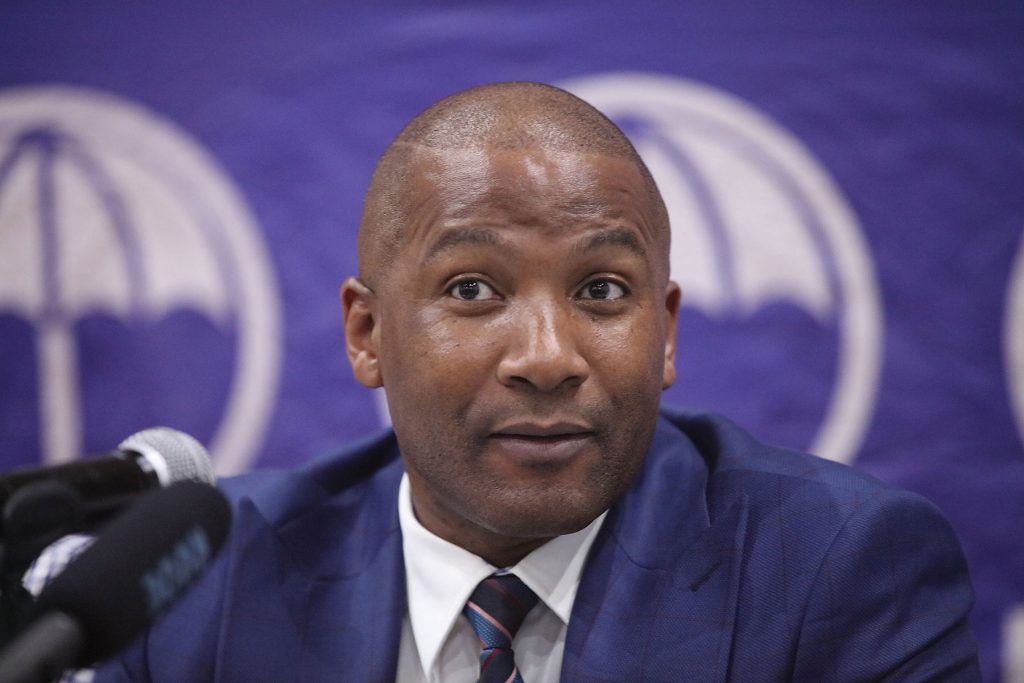Botswana’s politician who did the unthinkable
3 min read

With a confident demeanor and an articulate manner, Botswana’s newly elected President Duma Boko embodies the qualities of a seasoned human rights lawyer. At 54 years old, his education, which began in Botswana and continued at Harvard Law School, is evident in his thoughtful and fluent speech.
Boko’s victory in the recent presidential elections, achieved on his third attempt, reveals a relentless ambition that few have demonstrated in the country’s political landscape. For over half a century, opposition leaders have aspired to dethrone the Botswana Democratic Party (BDP), but it is Boko who has turned this dream into reality.
The decisive victory of his party, the Umbrella for Democratic Change (UDC), caught many by surprise, including Boko himself, who expressed his astonishment at the overwhelming support he received. In his first statements to the media, dressed in his trademark dark blue suit, he refrained from boasting or celebrating excessively. Instead, he pledged to serve the people to the best of his ability, promising to seek guidance in areas where he might fall short.
Boko’s campaign resonated deeply with a nation grappling with economic challenges. His promises of change, job creation, and government stipends struck a chord with many voters. “People fell in love with him, and this is the result,” noted journalist Innocent Selatlhwa during a discussion on the BBC’s Focus on Africa podcast. Boko’s approach at rallies, where he invited supporters to share their concerns, helped him connect with younger voters, making him both relatable and approachable.
Unlike many politicians who juggle multiple roles, Boko focused solely on the presidency, a bold strategic choice highlighted by Selatlhwa. Born in 1969 in Mahalapye, a small town in Botswana’s Central District, Boko has always been driven by a strong sense of justice and integrity, as described by relatives. His aunt reflected on his character, stating, “He was so fixated on doing the right thing. His sense of justice ran deep.” Even in his school years, he displayed leadership qualities, having been elected president of the student council.
As a legal professional, Boko established himself as one of Botswana’s leading lawyers. Political analyst Lesole Machacha emphasized Boko’s dedication to knowledge and education, which informs his understanding of national issues. “He is serious about fixing the country,” Machacha remarked, highlighting the weight of responsibility he carries as a leader.
In 2010, Boko became the leader of the Botswana National Front (BNF), a party that has shifted from its communist roots toward a more centrist stance. Frustrated with the continual setbacks faced by the opposition, Boko played a crucial role in forming a coalition of anti-government parties, leading to the creation of the UDC.
Despite facing criticism over a controversial comment made over a decade ago, where he labeled the academic staff at the University of Botswana as “useless,” Boko has remained steadfast in his convictions. His candidness, especially when confronted about this remark, showcases his unapologetic nature: “The truth hurts,” he stated on the South African news channel eNCA.
His wife, Kaone Boko, recently characterized him as principled, noting, “He does not back down from a fight; no matter how big the enemy is.” This determination perhaps sheds light on how he has managed to persistently challenge one of Africa’s most enduring political establishments.
As Duma Boko takes the helm of Botswana, his commitment to addressing the country’s challenges will be closely watched. His unique blend of legal expertise, political ambition, and relatable approach has not only transformed his party’s fortunes but also instilled hope for a new direction in Botswana’s governance. The coming years will reveal whether Boko can deliver on his promises and navigate the complexities of leading a nation in need of change.